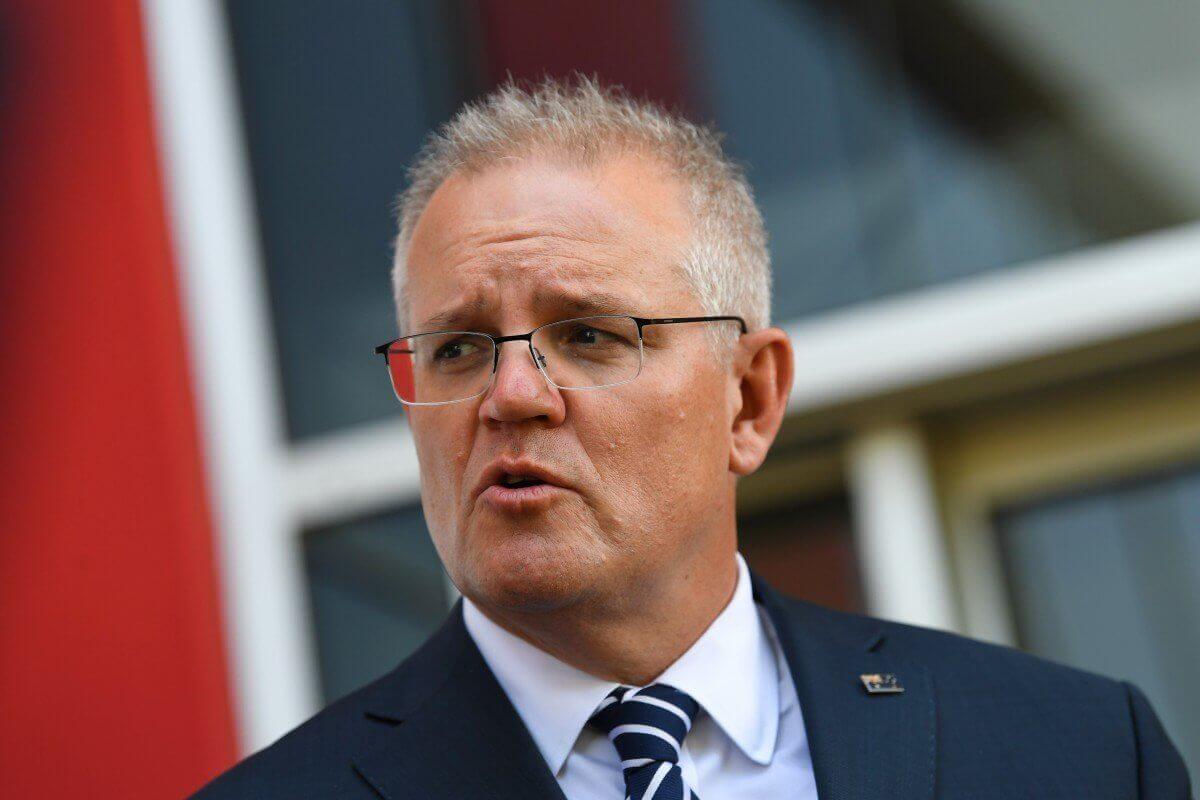On the back of signing a new military defense pact with Japan last week, Prime Minister (PM) Scott Morrison declared that Australia would not be drawn into making a “binary choice” between the United States (US) and China, amid heightened tensions between the two superpowers that have been characterized as the ‘New Cold War’.
The US and China have been embroiled in an escalating conflict that has seen repeated retaliatory diplomatic and trade sanctions, aggressive rhetoric, and attempts to carve out competing spheres of influence and alliances across the globe.
Against this backdrop, the Morrison administration has called for international investigations into China’s complicity in the coronavirus pandemic, described Beijing’s territorial claims in the South China Sea (SCS) as having “no legal basis”, criticized the new security legislation in Hong Kong and the treatment of Uighur Muslims in Xinjiang province, elevated its relationship with India from a Strategic Partnership to a Comprehensive Strategic Partnership (CSP), participated in the Malabar naval exercises with the Quad, signed a defense pact with Japan, and joined US warships in an attempt to steer Chinese vessels out of Malaysia’s Exclusive Economic Zone (EEZ). All of this pointed to the suggestion that Australia had firmly sided with the US.
However, this week, in a speech to UK think tank Policy Exchange, Morrison sought to initiate some sort of damage limitation, and even took pains to suggest that the description of the ‘strategic competition’ between the two superpowers could not be described as a new Cold War, as the now interconnected world is “no longer divided into two blocs with their own economic realm”.
He acknowledged that Australia’s bilateral ties with China are perhaps at a difficult point, due to his administration’s calls for an “independent investigation into the origins of COVID-19, banning Huawei from the nation’s 5G network in 2018 and blocking 10 Chinese foreign investment deals across infrastructure and agriculture”.
Nevertheless, Morrison remarked, “Our actions are wrongly seen and interpreted by some only through the lens of the strategic competition between China and the United States,” adding, “It’s as if Australia does not have its own unique interests or views as an independent sovereign state. This is false and needlessly deteriorates relationships.” He said that Australia “is not, and has never been, in the economic containment camp on China,” and that Canberra in fact seeks an “open, transparent and mutually beneficial relationship” with Beijing, who represents Australia’s biggest trading partner.
The Australian leader was keen to stress that, equally, Australia is “absolutely committed to our enduring alliance with the United States, anchored in our shared world view, liberal democratic values and market-based economic model”.
This closely follows Foreign Minister Marise Payne’s comments in July, when she said that US Secretary of State Mike Pompeo’s aggressive rhetoric on China represents “his own position”, and not Australia’s.
Given Australia’s recent actions, however, Morrison’s speech appears to suggest the Australia is simply backtracking due to the fear of the crippling economic damage caused by angering China. Aside from the warnings uttered by its foreign ministry spokespersons, Beijing has also used state-owned media outlets like the Global Times to threaten to deliver a “fatal” blow to Australia’s economy.
China’s Ministry of Commerce (MOFCOM) has placed strict trade restrictions and even temporary bans on a number of Australian exports, including copper, wine, beef, barley, timber, lobster, coal, dairy, fruit, and oatmeal. In fact, Australian coal exports to China fell by 90% last week when compared to the same time last year.
China accounts for 40% of Australia’s $3 billion wine trade. Likewise, 50% of Australian barley exports are shipped to China. Similar dependency is observed in the iron ore and coal industry, which both make up $120 billion of Australian exports to China, while copper exports to China amount to $3.4 billion.
Morrison’s comments echo a statement he made last week, when he said that Australia is “not seeking to make an enemy out of any country; least of all China”; he highlighted that Canberra holds a comprehensive strategic partnership with Beijing. It now remains to be seen whether these statements will convince Beijing to relax some of its severe trade restrictions on Australian exports.
Morrison Says Australia Will Not Be Drawn Into Making “Binary Choice” Between US and China
The Australian Prime Minister’s statement comes at a time when China has placed a number of trade restrictions on Australian exports in retaliation to Canberra’s repeated criticism of Beijing.
November 24, 2020

IMAGE SOURCE: JAMES ROSS / AAPAustralian PM Scott Morrison
